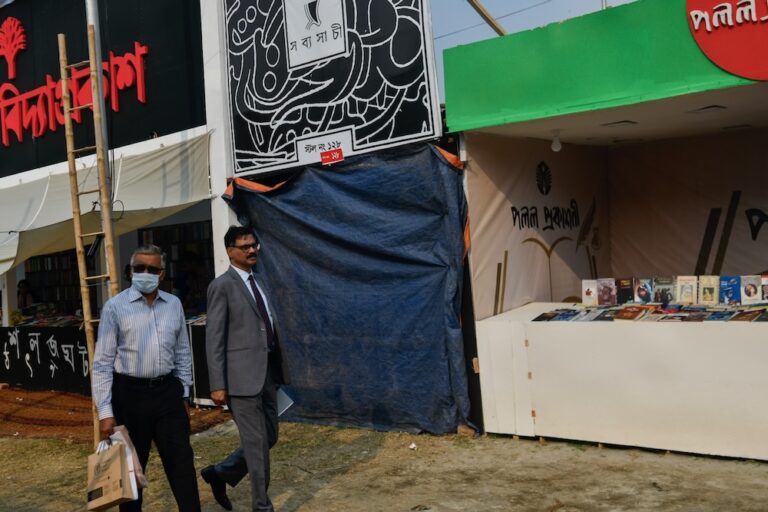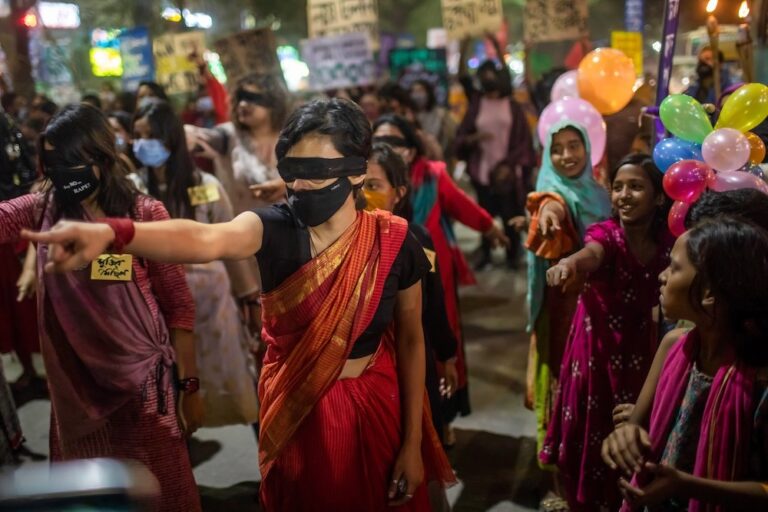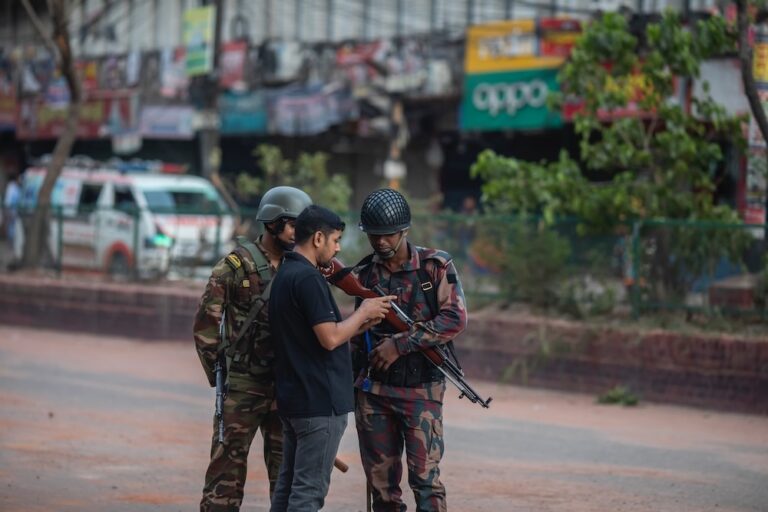The conviction and sentencing of Dhaka-based journalist David Bergman is a serious set-back to Bangladesh's commitment to free speech and independent scholarship.
This statement was originally published on pen-international.org on 15 December 2014.
We, the undersigned journalists, writers, historians and activists from South Asia, are deeply concerned about the use of ‘contempt of court’ law to curb freedom of expression. The conviction and sentencing on December 2, 2014, of Dhaka-based journalist David Bergman by the International Crimes Tribunal 2 on charges of “contempt of court” for citing published research on killings during the Bangladesh Liberation War of 1971, is a serious set-back to Bangladesh’s commitment to free speech and independent scholarship.
At the outset, we reiterate our belief that those responsible for genocide and international crimes during the Liberation War must be prosecuted and punished through an open and transparent process.
We firmly believe that the right to expression must include the right to examine, analyse and comment on differing historic narratives. We are aware that in his blogs, posted most recently two years ago, Bergman cited figures from published research on deaths and other casualties during the 1971 Liberation War. A difference in the figures of total fatalities does not in any way diminish the truth that heinous and widespread war crimes were committed in 1971 – and Bergman’s articles stress this very point and call for evidence-based data. In his words,
“There is enough substantiated evidence to suggest that whatever the exact number of deaths, a very large number of civilians were killed. Yet, at the same time, arguably it is important for the sake of accuracy that people do not claim that a particular number of people died – whether it is too high or too low – which has no basis at all in the evidence.”
We are also particularly concerned about the personal attacks by the Tribunal on David Bergman. Having contributed to the Royal Television Society award winning Channel Four documentary, the ‘War Crimes File’, on which the Tribunal itself relied in another case to convict a war criminal, Bergman has consistently written in support of the need for war crimes trials for the atrocities and crimes against humanity in 1971.
We find the court’s decision may have a chilling effect on freedom of expression with ramifications for journalists, writers and scholars throughout the region.
We are concerned to note that the ICT’s governing statute does not allow any appeal against contempt orders or judgments, and allows no defence of truth, which undermines due process and rule of law.
We note that the accepted standard in emerging jurisprudence around the world is for courts to avoid resort to contempt of court as this reflects negatively on public respect extended towards the court itself.
We urge and appeal to the authorities concerned to reform the contempt of court law as it is a relic of South Asia’s colonial past and should be reformed in line with a broad understanding of freedom of expression.
Signed:
1.Kishali Pinto-Jayawardena, lawyer and columnist, Colombo, Sri Lanka
2.Kumari Jayawardena, feminist academic, Colombo, Sri Lanka
3.Kanak Mani Dixit, Editor Emeritus , Himal Southasian, Kathmandu
4.Aunohita Mojumdar, Editor, Himal Southasian. Kathmandu
5.Laxmi Murthy, Director, Hri Institute for Southasian Research and Exchange, Kathmandu, Nepal
6.Vrinda Grover, lawyer, Delhi, India
7.Uma Chakravarti, feminist historian, Delhi, India
8.Amar Kanwar, film maker, Delhi, India
9.Shohini Ghosh, Sajjad Zaheer professor at the AJK Mass Communication Centre, Jamia Millia Islamia University, Delhi, India
10.Kavita Krishnan, National Secretary, All India Progressive Women’s Association, India
11.Nandini Sundar, Professor of Sociology, Delhi University
12.Urvashi Butalia, Director, Zubaan Books, Delhi, India
13.Siddharth Varadarjan, Former Editor, The Hindu, Senior Fellow, Centre for Public Affairs and Critical Theory, Shiv Nadar University, India
14.Harsh Sethi, Consulting Editor, Seminar
15.Sukumar Muralidharan, Senior Journalist, Indian Institute of Advanced Study, Shimla, India
16.Ammu Joseph, Independent Journalist, Bangalore, India
17.Geeta Seshu, Consulting Editor, The Hoot, India
18.Jyoti Punwani, freelance journalist, Mumbai , India
19.Kalpana Sharma, Independent journalist/columnist, Mumbai, India
20.Kavita Panjabi, Professor of Comparative Literature, Jadavpur University, Kolkata
21.Sushil Khanna, Professor, Indian Institute of Management Calcutta
22.Selvyn Jussy, HOD Linguistics, Calcutta University
23.Rajashri Dasgupta, Journalist, Kolkata
24.Geeta Ramashesan, High Court Lawyer, Chennai
25. Shuddhabrata Sengupta, artist, Raqs Media Collective, contributor – Kafila.org


